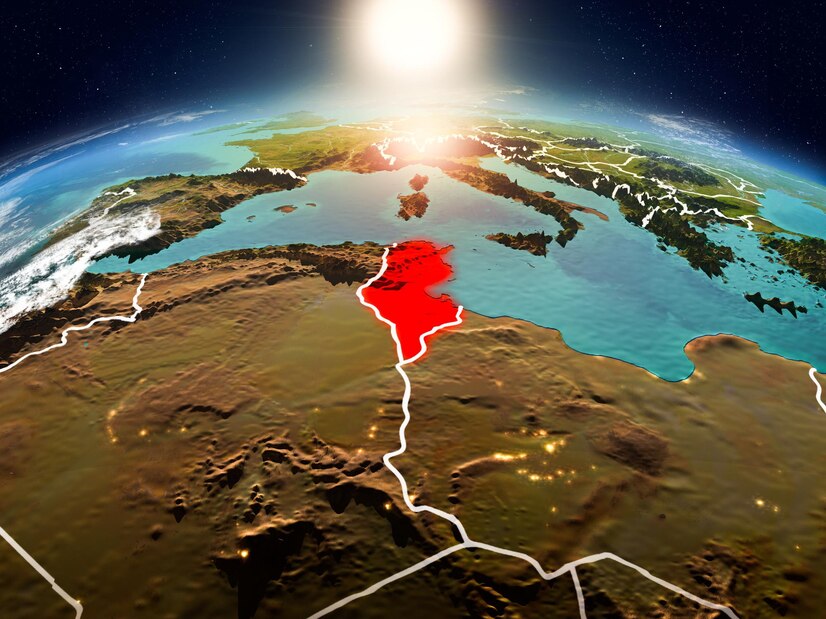In the heart of the Caribbean, lies the vibrant island of Puerto Rico, where azure waters meet lush landscapes. Yet, beneath this scenic beauty lies a geological reality: Puerto Rico is situated in a seismically active region, vulnerable to the tremors and quakes that shape our planet. To mitigate risks and ensure the safety of its inhabitants, Puerto Rico boasts a robust seismic monitoring system, known as the Puerto Rico Seismic Network (PRSN). This article delves into the intricacies of PRSN, exploring its significance, operations, and contributions to seismic understanding.
Understanding Seismic Activity
Unveiling Earth’s Restlessness
Earthquakes, the result of tectonic plate movements, are a testament to the dynamic nature of our planet. These seismic events, ranging from subtle vibrations to catastrophic quakes, occur worldwide, with varying magnitudes and frequencies. Puerto Rico, nestled within the seismically active Caribbean Plate, experiences its fair share of tremors, owing to the complex interactions between the North American, Caribbean, and Atlantic plates.
The Birth of PRSN
Fortifying Puerto Rico’s Resilience
In response to the region’s susceptibility to seismic hazards, the Puerto Rico Seismic Network emerged as a cornerstone of resilience and preparedness. Established in 1974 under the auspices of the University of Puerto Rico at Mayagüez (UPRM), PRSN embodies collaborative efforts between academia, government agencies, and international organizations. With a mandate to monitor, analyze, and disseminate seismic data, PRSN stands as a sentinel against the unpredictable forces of nature.
The Technological Backbone
Harnessing Innovation for Safety
At the heart of PRSN lies a sophisticated network of seismometers, accelerometers, and data processing systems. These instruments, strategically deployed across Puerto Rico and neighboring islands, capture the subtlest of ground movements, providing real-time insights into seismic activity. Advanced technologies, including GPS and satellite communication, enable seamless data transmission and analysis, empowering scientists to discern patterns and trends in earthquake occurrence.
Monitoring and Detection
Vigilance in Action
PRSN operates round the clock, tirelessly monitoring Puerto Rico’s seismic landscape. Upon detecting anomalous seismic signals, automated alert systems spring into action, triggering rapid response protocols. These protocols, meticulously crafted in collaboration with emergency management agencies, facilitate timely warnings and advisories, empowering communities to enact preparedness measures and mitigate potential risks.
Research and Analysis
Unraveling Seismic Mysteries
Beyond its operational mandate, PRSN serves as a crucible for scientific inquiry and exploration. Through the analysis of seismic data, researchers unravel the intricacies of Puerto Rico’s tectonic framework, probing fault lines, stress distributions, and earthquake mechanisms. Such insights not only enhance our understanding of local seismicity but also contribute to broader geological studies, shaping global seismic models and hazard assessments.
Community Engagement and Outreach
Empowering Through Education
Recognizing the importance of public awareness and education, PRSN engages in extensive outreach initiatives aimed at fostering seismic literacy and preparedness. Educational programs, workshops, and public seminars disseminate knowledge on earthquake dynamics, safety protocols, and resilience-building strategies. By empowering communities with the requisite knowledge and tools, PRSN fosters a culture of preparedness, ensuring collective resilience in the face of seismic threats.
Forging Global Partnerships
In an interconnected world, seismic hazards transcend geographical boundaries, necessitating international cooperation and collaboration. PRSN actively participates in regional and global networks, exchanging data, expertise, and best practices with counterparts worldwide. Through collaborative research endeavors and capacity-building initiatives, PRSN contributes to the collective endeavor of enhancing global seismic resilience.
Navigating the Seismic Landscape Ahead
Despite its achievements, PRSN confronts an array of challenges, from budgetary constraints to technological obsolescence. Sustaining and enhancing the network’s capabilities demand continued investment in infrastructure, human resources, and research endeavors. Moreover, emerging threats, such as climate change-induced sea-level rise and coastal erosion, underscore the need for holistic risk management strategies that integrate seismic and environmental considerations.
Conclusion
In the realm of seismic monitoring and preparedness, the Puerto Rico Seismic Network stands as a beacon of resilience and innovation. From its humble beginnings to its current stature as a regional leader in seismic science, PRSN embodies the collective efforts of scientists, engineers, policymakers, and communities united in their commitment to safeguarding lives and livelihoods. As Puerto Rico navigates the seismic landscape ahead, PRSN remains steadfast in its mission, a testament to human ingenuity and collaboration in the face of nature’s unpredictability.







